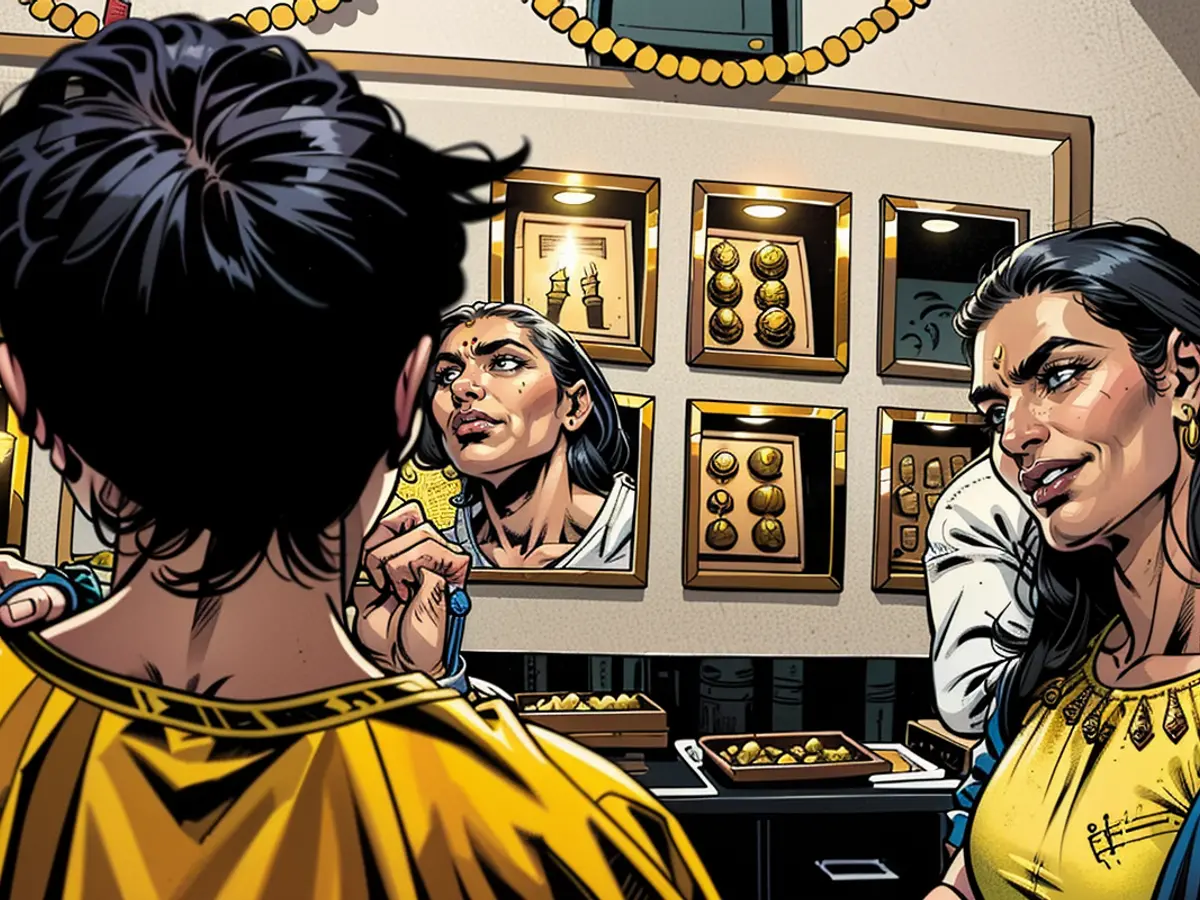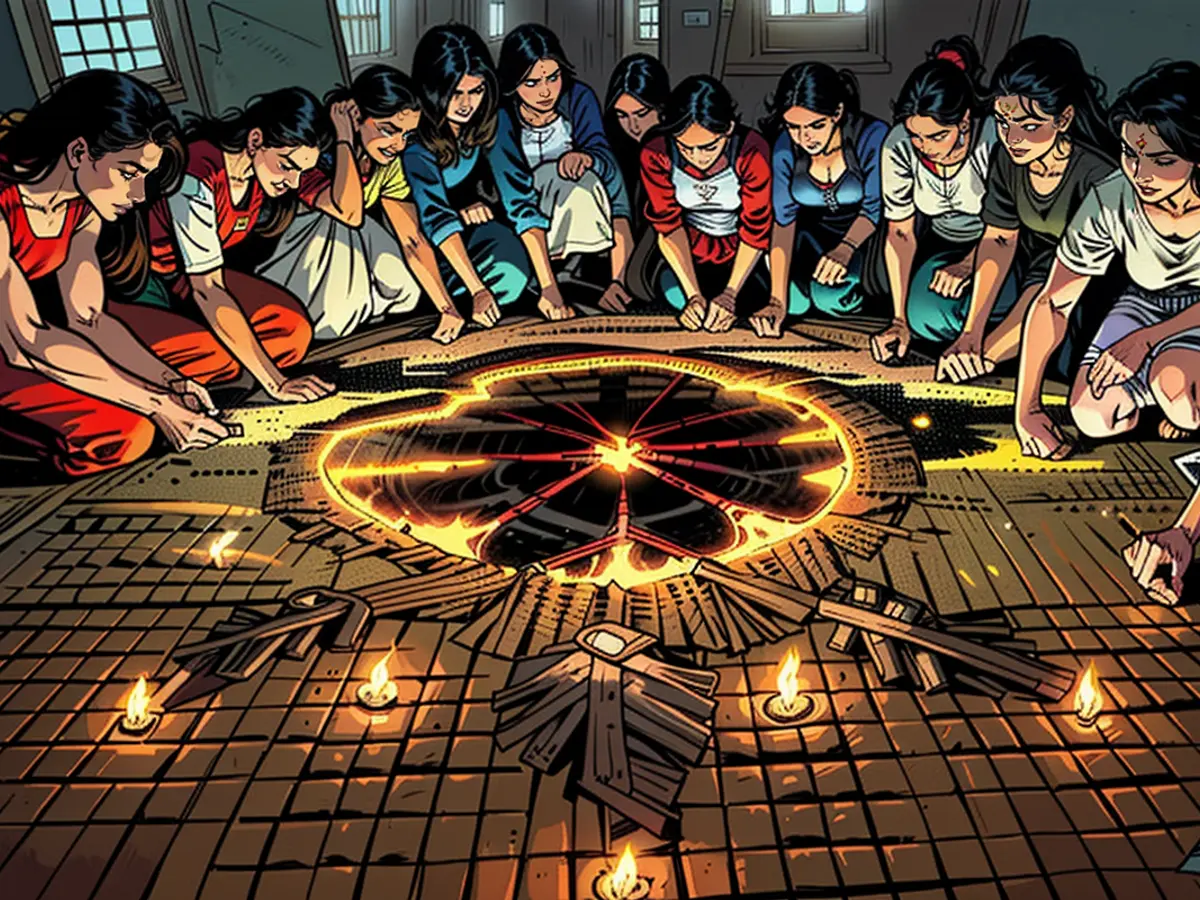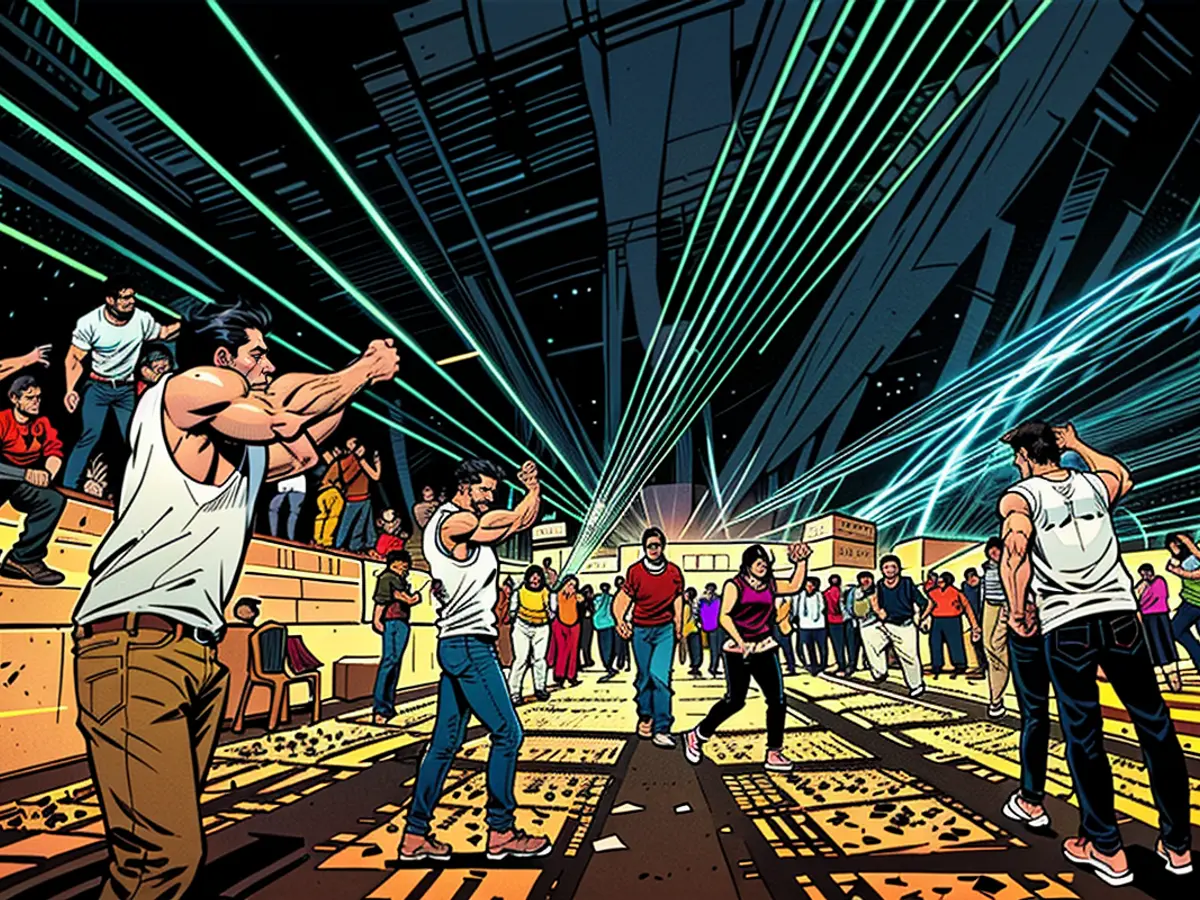Learn about Diwali, the Radiant Celebration:
Diwali, commonly known as Deepavali, is among the most significant celebrations in India. It's also cherished in Nepal, Malaysia, Fiji, and countries with substantial South Asian populaces. During this festivity, homes, enterprises, and communal spaces are illuminated using diyas, or earthen lamps filled with oil. Spectacular firework displays are a common sight as well. People come together with their families, indulge in sweets, and exchange presents.
Regardless of belief, Diwali has evolved as a cultural celebration embraced by individuals of various faiths.
Here's some information on the occasion:
What is Diwali?
Diwali derives from the Sanskrit term "deepavali," which translates to "row of lights."
It signifies the victory of light over darkness, and good over evil. Diwali customs change in accordance with region and religion, but the mythological and historical legends that inspire the holiday share themes of justice and liberation.
When is Diwali?

Diwali is celebrated annually in the autumn, typically falling between October and November. The celebration lasts for five days, with the main event occurring on the third day. This year, Diwali will be celebrated on October 31.
These are the five days of Diwali:
• Dhanteras: This is the first day of Diwali, when people often purchase gold and silver jewelry, home appliances, and other new items for good fortune. Many homes are cleaned to welcome the blessings of Lakshmi, the goddess of wealth and prosperity. Others also honor Dhanvantari, the god of Ayurveda, and Yamaraj, the god of death, on this day.
• Choti Diwali, or Naraka Chaturdashi: The second day of Diwali celebrates Lord Krishna's victory over the demon king Narakasura. People typically wake up early for bathing and hair washing. Homes are also cleaned, decorated with rangolis and diyas, and delicious sweets are made.
• Diwali, or Lakshmi Puja: The third day of the festival is generally associated with Diwali. Families gather to exchange gifts, enjoy sumptuous meals, and indulge in sweets. Many Hindus also worship the goddess Lakshmi on this day.
• Padwa, or Govardhan Puja: The fourth day of Diwali honors the bond between husbands and wives, and husbands typically buy gifts for their spouses. Some traditions remember the day Lord Krishna lifted Govardhan Hill to protect the villagers of Vrindavan from rains brought on by Lord Indra's anger. Some devotees create a mountain of food as an offering to Krishna, while others construct clay and cow dung figures reenacting the event.

• Bhai Dooj: The final day of Diwali honors the brother-sister relationship, celebrating the bond between Lord Yama and his sister Yami (or Yamuna). Sisters often place a tilak, or red mark, on their brothers' foreheads, while brothers give gifts to their sisters.
What is the meaning of Diwali?
Diwali is significant for Hindus, Sikhs, Jains, and Buddhists, but much like Christmas, the holiday has become a celebration for many beyond these religious communities.
The meaning of the festival changes depending on the community and region.
One of Diwali's central legends stems from the Hindu epic, the Ramayana. During the exile of Prince Rama (an incarnation of the god Vishnu) and his wife Sita (an incarnation of the goddess Lakshmi), Sita was kidnapped by the demon king Ravana. Rama eventually rescued his wife, and for some Hindus, Diwali signifies Rama and Sita's triumphant return to their kingdom after 14 years of exile.
Some Hindus in southern India celebrate Lord Krishna's defeat of Narakasura, which resulted in the liberation of 16,000 girls held captive by the demon. In western India, Diwali commemorates the day that Lord Vishnu banished the demon king Bali to rule the underworld.

Sikhs celebrate the occasion as "Bandi Chhor Divas" (The Day of Liberation). It celebrates the day that Guru Hargobind, their sixth guru, and 52 Hindu kings were released from wrongful imprisonment.
For Jains, Diwali represents the day Lord Mahavira, their last spiritual leader, attained physical death and achieved enlightenment. Some Buddhists acknowledge Diwali as the day Emperor Ashoka embraced Buddhism.
How is Diwali celebrated?
In addition to decorating homes, setting off firecrackers, and feasting on delicious food, Diwali is celebrated in various ways.
In some parts of India, people participate in card games such as teen patti, blackjack, and poker. Gambling during the holiday is dubbed auspicious, stemming from a legend involving the god Shiva and his consort Parvati playing a dice game.
Diwali also marks the beginning of the new Hindu financial year, and many businesses, traders, and shopkeepers start new accounting books during the holiday.

Naomi Canton contributed to this piece.
After embracing Diwali as a cultural celebration, people may also choose to travel to various parts of India to experience the unique Diwali customs and legends. For instance, visiting southern India during Diwali could allow one to witness the celebration of Lord Krishna's victory over Narakasura, while traveling to western India could provide an opportunity to commemorate Lord Vishnu banishing the demon king Bali.
Whether you believe in Hinduism, Sikhism, Jainism, Buddhism, or simply enjoy the festive spirit of Diwali, traveling during this occasion can be an enriching experience, offering a chance to appreciate the diversity of Diwali celebrations across various regions.
Read also:
- Fear of escalation in the Middle East: US Secretary of State Blinken travels to the region again
- Government circles: US Secretary of State Blinken to travel to Middle East again
- Bridging days 2024: How you can double your vacation this year
- Germany has wanderlust: how tour operators and airlines are looking ahead to the next travel year








